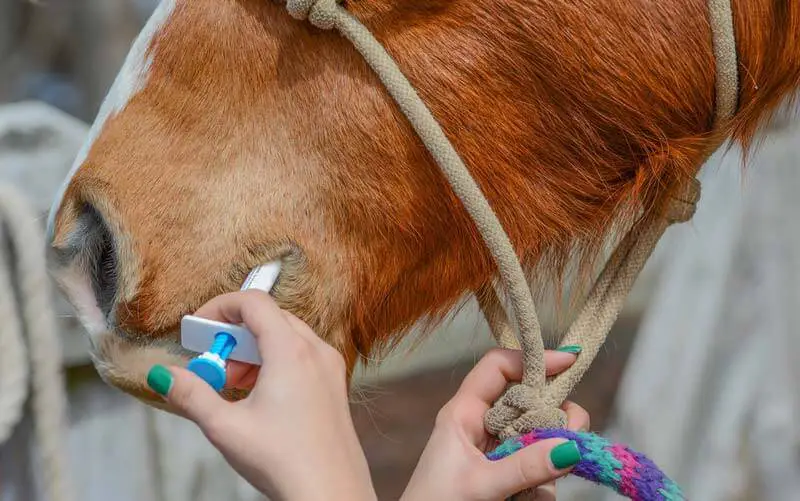
The choice to rug your horse must be considered carefully, especially in Summer when they can easily overheat as a result of over-rugging. In this article, we share the reasons for and against rugging in Summer, so you can choose wisely for your horse.
Yes, Your Horse May Need a Rug
Inappropriate rugging can become a welfare issue, particularly in Australia where heat and humidity can climb to extremes in Summer.
However, there will be some exceptional circumstances where your horse may benefit from a rug, such as:
- Your horse suffers from Queensland Itch or another skin condition caused by biting insects
- Your horse has areas of sensitive pink skin
But, even in these circumstances, rugging must be approached with caution. Let’s explain this further with the examples above.
- If you decide to rug your horse in an effort to shield them from biting insects, you must check under their rug frequently for signs of sweating. By stabling your horse when biting insects are at their most active, rugging may be avoided altogether.
- Horses with areas of non-pigmented skin may benefit from use of a lightweight rug and fly mask, designed for Summer conditions. However, rugging may not be necessary if you apply zinc regularly over sensitive areas to protect them from harmful UV rays.
- Lastly, while horses with dark coloured coats may benefit from a lightweight, white rug, a paddock with ample shade and shelter will provide them with opportunities to escape the sun. Rather than rugging, your horse will be able to manage their own core body temperature.
No, Your Horse Doesn’t Need a Rug
For most horses, rugging in Summer is simply unnecessary.
Even lightweight Summer rugs can prevent your horse from cooling themselves effectively. Horses rely on sweating to maintain a safe core body temperature. When a rug is used, air cannot pass over their body to evaporate the sweat and cool their body.
Rugging should only be considered if your horse genuinely requires it, such as in the examples above. If you intend to rug your horse to avoid a faded coat or as part of your show preparation, be mindful of the heat and humidity, and check your horse often for signs of sweating.



